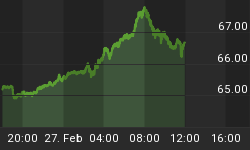Since the United States withdrew from the Iran Nuclear Deal, tensions between Washington and Tehran have reached new heights. And with a fresh round of U.S. sanctions on the horizon, the Islamic Republic is looking outside the box for solutions to its growing economic troubles.
The Nuclear Deal
The Iran Nuclear Deal, otherwise known as the Joint Comprehensive Plan of Action (JCPOA), is an international agreement between Iran and five permanent members of the United Nations Security Council. The deal was reached in order to ensure that Iran’s nuclear advancements were peaceful in nature. In exchange for cooperation from Tehran in reducing enriched uranium stockpiles and installed centrifuges, the United States would lift strict sanctions that had weighed on the Iranian economy.
The JCPOA received positive attention from leaders across the globe and ushered in a new era of opportunity for Iran.
Then, in May 2018, President Donald Trump announced that the U.S. would be leaving the deal and re-implementing harsh sanctions on Iran. Trump’s announcement was met with harsh criticism, with some key allies even threatening to continue doing business with Tehran despite sanctions.
What do these sanctions entail?
President Trump’s executive memorandum signed in May kicked off a 180-day countdown wherein Secretary of State Mike Pompeo and Treasury Secretary Steven Mnuchin must re-impose pre-JCPOA sanctions on Iran. Related: New York Evicts Internet Provider For High-Speed Failure
By August 6th, Iran will be banned from buying or acquiring U.S. dollars, restricted from buying gold or other precious metals, restricted from trading industrial metals, and forbidden to sell Iranian debt.
At the end of the 180-countdown, on November 4th, Iran will be unable to buy or sell petroleum products, foreign entities will be unable to do business with Iran’s central bank, and Iran’s energy sector will be scaled back significantly.
Though the sanctions are tough, France, Germany and the UK are all pushing back, even considering ditching the dollar in trade with Iran. And Tehran, for its part, is looking toward technology to get around the crippling restrictions
The crypto-rial
Iran’s relationship with cryptocurrencies is complicated. In April, the Central Bank of Iran imposed new measures to boost the rial, banning the sales or purchases of cryptocurrencies for businesses within the country.
Despite the ban, however, citizens are turning to cryptos in order to hedge against the plummeting rial. In May, Mohammad Reza Pourebrahimi, the Chairman of the Economic Commission of the Parliament of Iran noted: “Based on the existing data, few people in Iran are cryptocurrency users and more than 2.5 billion dollars has been sent out of the country for buying digital currencies.”
The capital flight also led United States officials to step in, reportedly confiscating over 500 bitcoin (and counting) from Iranian nationals. Sepehr Mohammadi, president of Iran’s Blockchain Association explained: “Last year, a remarkable volume of bitcoins which belonged to some Iranians were confiscated for unspecific reasons by the federal government of the United States, and the process of confiscation is still continuing,” adding “some people believe that this confiscation is because bitcoin owners were circumventing U.S. sanctions,”
Even with U.S. officials’ efforts attempts to keep the crypto-flow in check, it appears Iran may be warming up to cryptocurrencies.
The country’s deputy for management and investment at the Directorate for Scientific and Technological Affairs, Alireza Daliri, said: “We are trying to prepare the ground to use a domestic digital currency in the country,” adding “this currency would facilitate the transfer of money [to and from] anywhere in the world. Besides, it can help us at the time of sanctions.”
Though the details of the coin are still unclear, its implementation could help international companies do business within the country.
Related: Soda, Beer Prices Up As Tariffs Start To Hit Home
Of course, this was also the dream of Venezuelan President Nicolas Maduro whose state-sponsored cryptocurrency, el petro, was a complete disaster.
Will it work?
With the first round of sanctions only days away, and its currency in freefall, it appears Iran is doing everything it can to stay afloat, though it will be facing an uphill battle in the process.
The idea of a state-sponsored cryptocurrency has been poorly received by most within the cryptocurrency community, but on an international level, the new asset class could carry a lot of weight. If Iran’s crypto-dreams are to play out, it will take the support of other major players, something that Venezuela has been struggling to receive.
Despite offering huge discounts on crude oil if other countries use the petro, Maduro still can’t get others to play ball, and Iran will likely face the exact same dilemma.
The case for cryptocurrency in Iran is clear, but is a state-sponsored coin really the answer?
By Michael Kern via Crypto Insider
More Top Reads From Safehaven.com
















